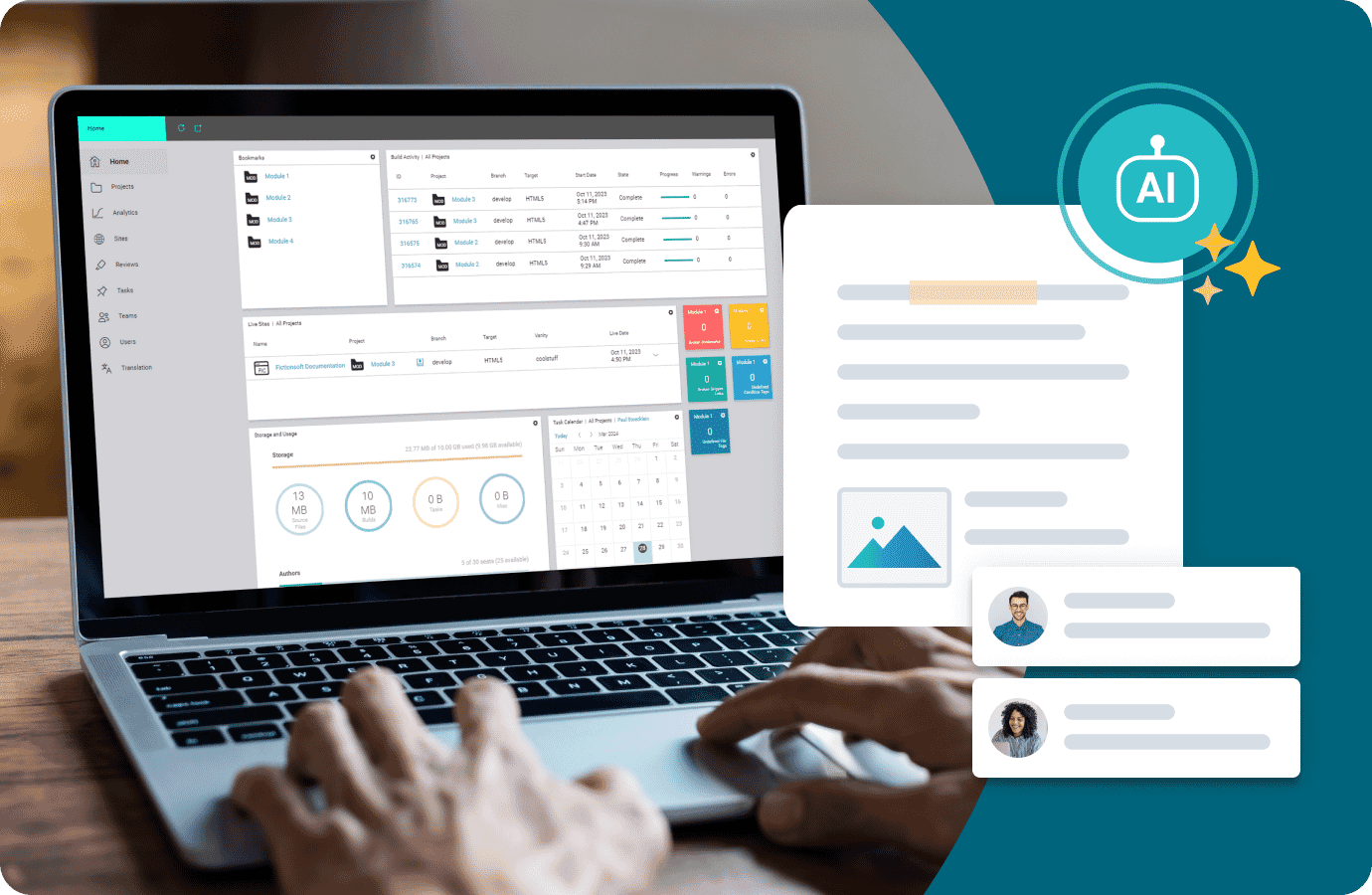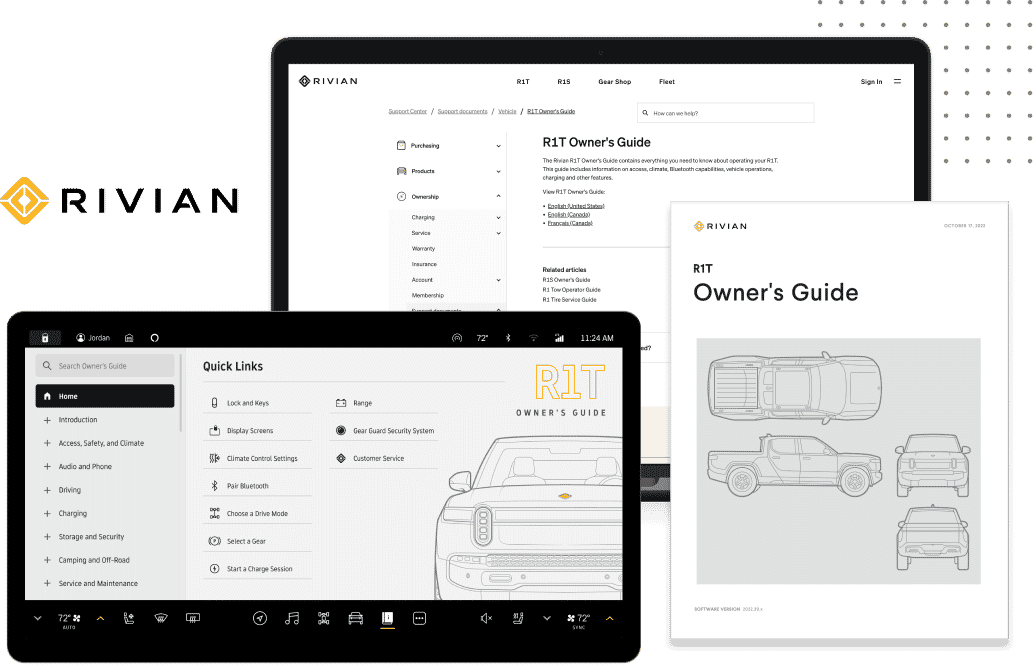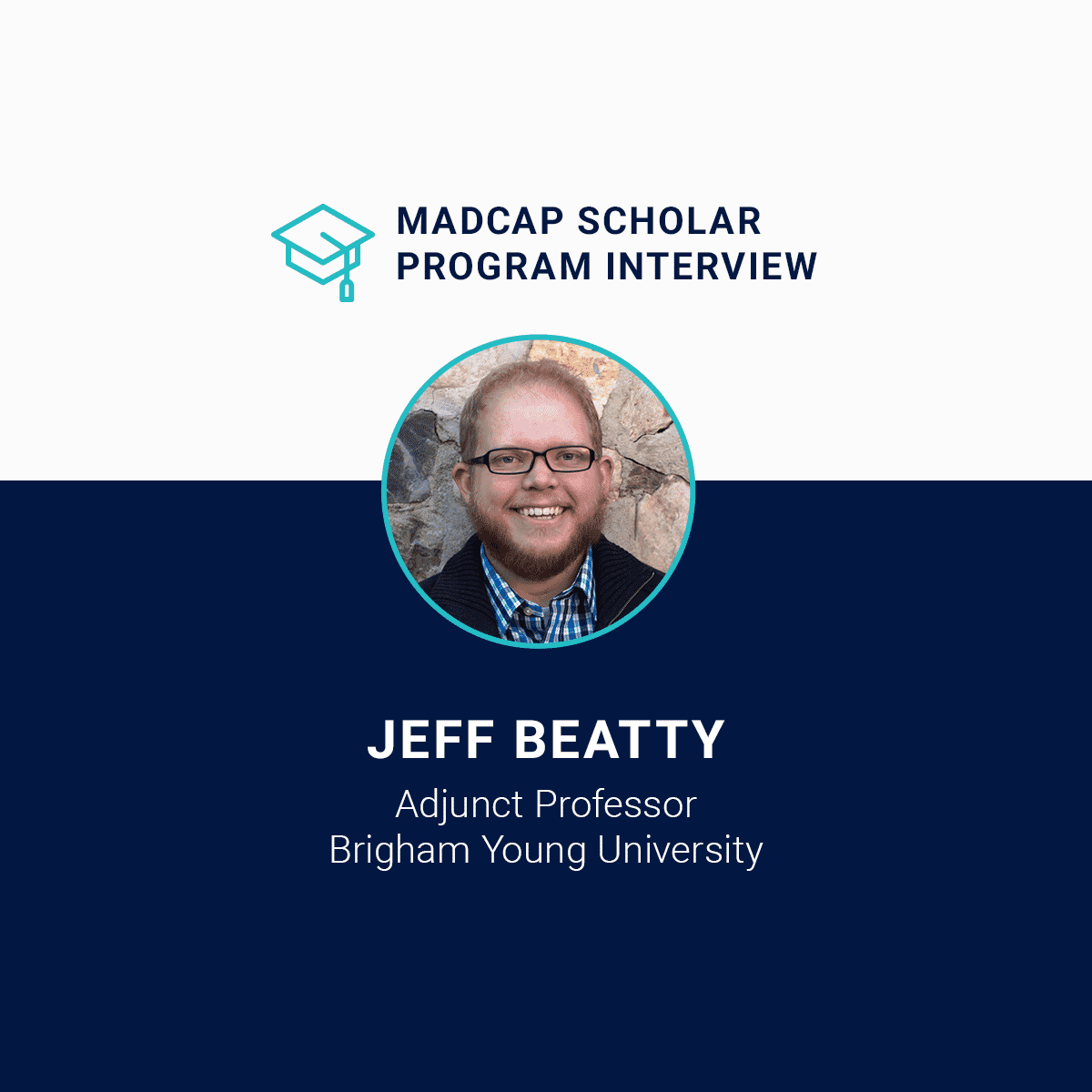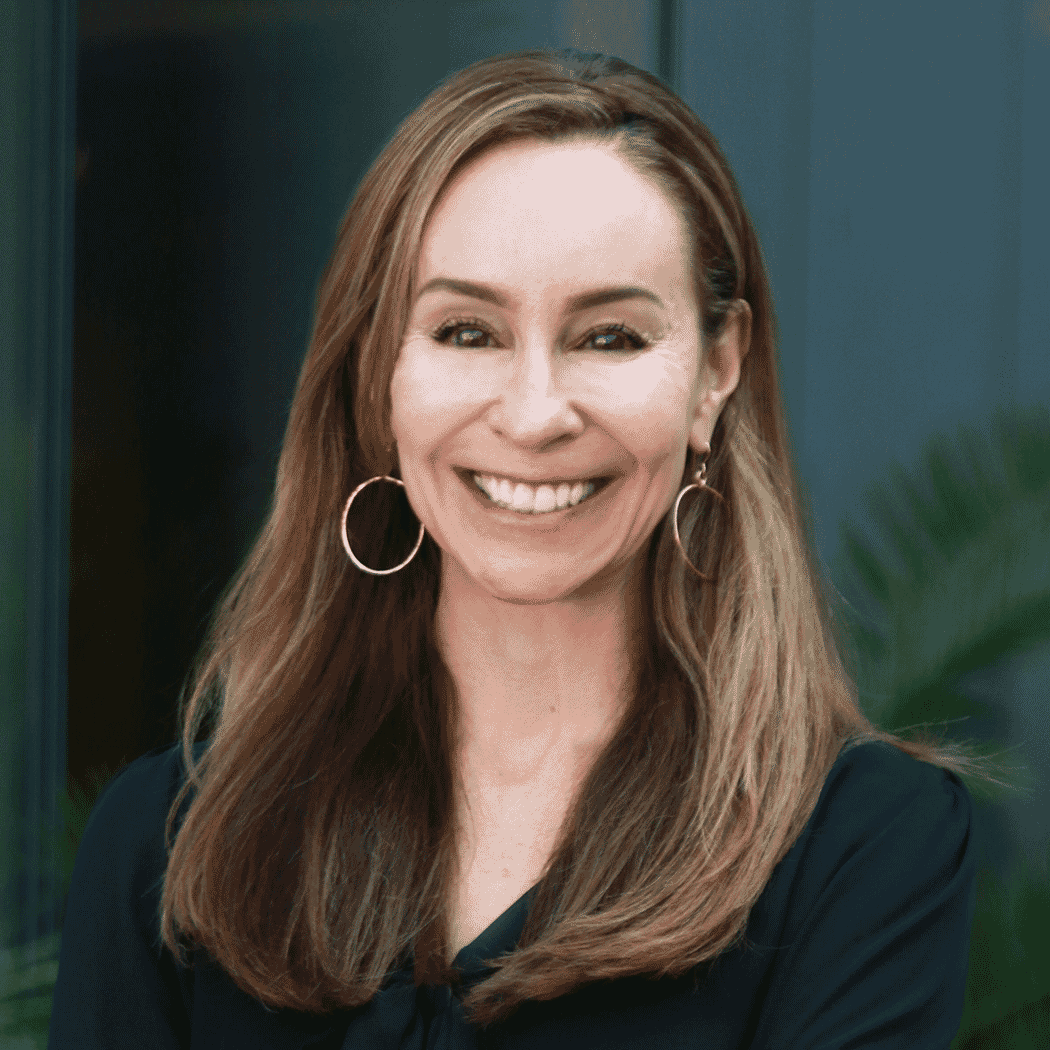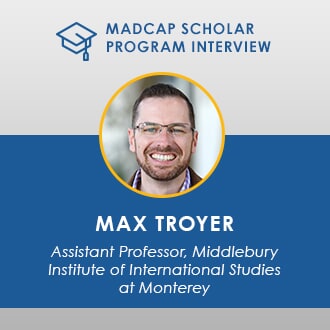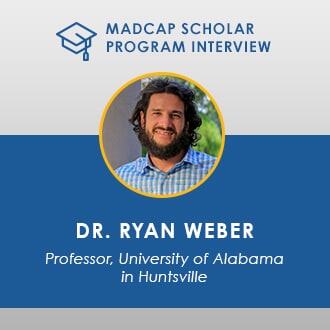Translation and localization is a major component of technical communication, and many universities are realizing the need to provide students with the tools they need to succeed. Through the MadCap Scholar Program, we’ve been able to partner with professors and educators and help students better prepare for a career in technical communication.
Jeff Beatty is an adjunct professor teaching the “LING 480 – Problems in Translation” course at Brigham Young University. In the next post of our interview series, we speak to Jeff on his thoughts on the localization and translation industry and what students can do to prepare for a successful career.
What are some of the biggest changes you’ve seen in the translation and localization industry?
Facilitating collaboration is one of the biggest changes in the industry. In the past, most CAT tools were primarily standalone and had no APIs to interact with a server beyond sending and retrieving archived data between a client and server. The industry has needed more flexibility to allow their clients to make their tools play nice with one another.
What are the biggest challenges confronting the translation and localization industry, and how are you responding?
From the perspective of an educator, students are not offered enough experiential learning opportunities. Or, maybe better said, students aren't offered relevant and valuable experiential learning opportunities in the real world to bridge the gap between their education and their careers. This potentially creates a generation of professionals who are unable to meet the industry demands to be flexible and dynamic in a world that also requires faster translation of more diverse content.
What skills/knowledge are useful for a prospective student looking to enter the localization and translation industry?
Currently, a deep technical understanding of how CAT tools operate, complex file formats, and scripting have become very important. Additionally, project management and cross-cultural communication skills apply the human touch and help ensure projects are processed smoothly and according to a buyer's expectations.
In what ways could students better prepare for a career in translation and localization?
Pursue experiential learning opportunities through volunteering with non-profit organizations and open source projects. These opportunities allow students to see where the rubber hits the road, make some manageable mistakes, and learn about the real world challenges in the industry.
What impact has the MadCap Software Scholar Program had on the students?
The MadCap Software Scholar Program has been helpful in providing my students with a well-rounded learning experience. Diversified technology offerings empower them to overcome technical challenges in the workplace. With their first-hand experience with such offerings, they're better able to help their future employers to select the right technology for the right project and establish a reputation of expertise among their peers.
What is some of the feedback you’ve received from students after integrating MadCap Lingo into the program?
My students have loved the simplicity of the user experience. They're very often surprised that so many powerful and complex features are accessible through that simple and elegant UX. They have expected the UX complexity to match the feature set complexity and have been very happy with the high level of usability they find in MadCap Lingo.
Want to learn how your university or academic program can benefit from the MadCap Scholar Program? Reach out to me at jmorse@madcapsoftware.com with any questions!
